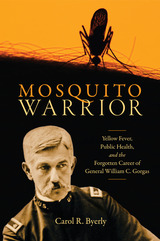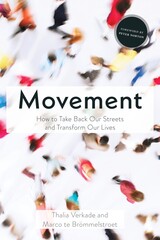
In the tense years of the early Cold War, American and Soviet women conducted a remarkable pen-pal correspondence that enabled them to see each other as friends rather than enemies.
In a compelling new perspective on the early Cold War, prizewinning historian Alexis Peri explores correspondence between American and Soviet women begun in the last years of World War II and continuing into the 1950s. Previously unexamined, the women’s letters movingly demonstrate the power of the personal, as the pen pals engaged in a “diplomacy of the heart” that led them to question why their countries were so divided.
Both Soviet and American women faced a patriarchal backlash after World War II that marginalized them professionally and politically. The pen pals discussed common challenges they faced, such as unequal pay and the difficulties of balancing motherhood with a career. Each side evinced curiosity about the other’s world, asking questions about family and marriage, work conditions, educational opportunities, and religion. The women advocated peace and cooperation but at times disagreed strongly over social and economic issues, such as racial segregation in the United States and mandatory labor in the Soviet Union. At first both governments saw no risk in the communications, as women were presumed to have little influence and no knowledge of state secrets, but eventually Cold War paranoia set in. Amid the Red Scare, the House Un-American Activities Committee even accused some of the American women of being communist agents.
A rare and poignant tale, Dear Unknown Friend offers a glimpse of the Cold War through the perspectives of women who tried to move beyond the label of “enemy” and understand, even befriend, people across increasingly bitter political divides.

Winner of the Pushkin House Russian Book Prize
Winner of the University of Southern California Book Prize
Honorable Mention, Reginald Zelnik Book Prize
“Fascinating and perceptive.”
—Antony Beevor, New York Review of Books
“Stand aside, Homer. I doubt whether even the author of the Iliad could have matched Alexis Peri’s account of the 872-day siege which Leningrad endured.”
—Jonathan Mirsky, The Spectator
“Powerful and illuminating…A fascinating, insightful, and nuanced work.”
—Anna Reid, Times Literary Supplement
“Much has been written about Leningrad’s heroic resistance. But the remarkable aspect of [Peri’s] book is that she tells a very different story: recounting the internal struggles of ordinary people desperately trying to survive and make sense of their fate.”
—John Thornhill, Financial Times
“A sensitive, at times almost poetic examination of their emotions and disordered mental states. It both contrasts with and complements the equally accurate official Soviet portrait of a stalwart population standing firm in the face of evil and in defense of Soviet ideals.”
—Robert Legvold, Foreign Affairs
In September 1941, two and a half months after the Nazis invaded the Soviet Union, the German Wehrmacht encircled Leningrad. Cut off from the rest of Russia, the city remained blockaded for 872 days, at a cost of almost a million lives. It was one of the longest and deadliest sieges in modern history.
The War Within chronicles the Leningrad blockade from the perspective of those who endured it. Drawing on unpublished diaries, Alexis Peri tells the tragic story of how young and old struggled to make sense of a world collapsing around them. When the blockade was lifted in 1944, Kremlin officials censored publications describing the ordeal and arrested many of Leningrad’s wartime leaders. Some were executed. Diaries—now dangerous to their authors—were concealed, shelved in archives, and forgotten. The War Within recovers these lost accounts, shedding light on one of World War II’s darkest episodes while paying tribute the resilience of the human spirit.
READERS
Browse our collection.
PUBLISHERS
See BiblioVault's publisher services.
STUDENT SERVICES
Files for college accessibility offices.
UChicago Accessibility Resources
home | accessibility | search | about | contact us
BiblioVault ® 2001 - 2024
The University of Chicago Press









